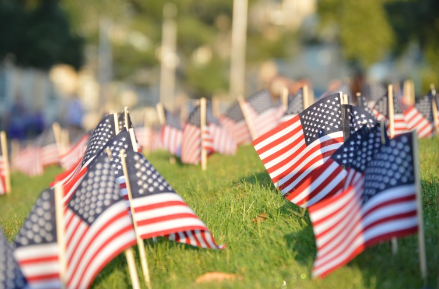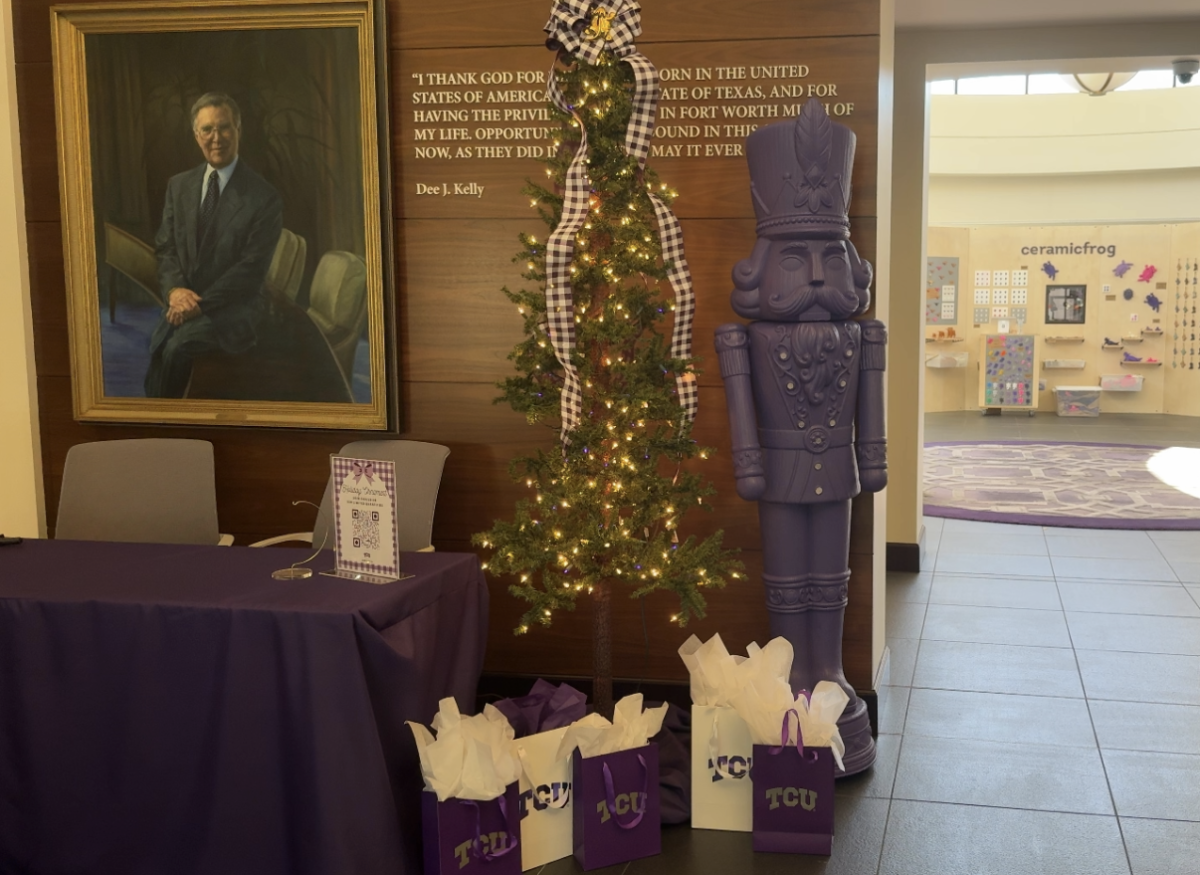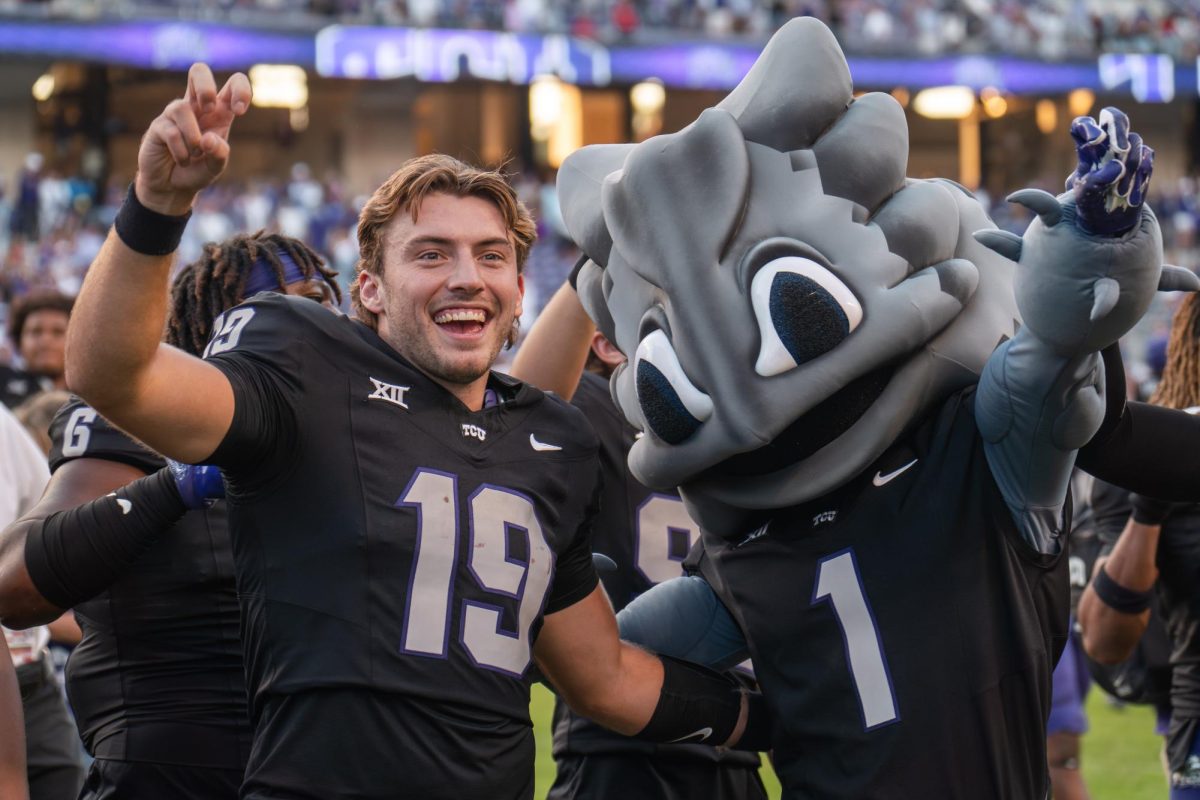Students in the 1960s were deeply involved in politics and demonstrated to show their opposition to the Vietnam War or their support to civil rights issues. But today’s students are not nearly as politically involved as their campus predecessors. Some attribute their lack of involvement to the current presidential candidates, while others say they are afraid to voice their opinion on the candidate of their choice. Others simply don’t care. “I mean, I have my political opinions, but most of the time I am afraid to share them in class for fear of people jumping down my throat,” said junior speech pathology major Christa Martin. “There are students who are vocal about the election, but for the rest of us, we sit in silence.” Some at TCU say college students are more interested in building relationships and football games than they are about the upcoming election. According to the Center for Information on Civic learning and Engagement, only 26 percent of eligible millennial voters voted in the 2012 election and only 21.3 percent in the 2014 midterm elections. However, fear of speaking up in class doesn’t seem to be a problem at Baylor University, according to one Baylor political science faculty member. “It’s not that students don’t talk about the campaign, it’s that I can’t get them to stop talking about it,” said Dave Bridge, professor of political science at Baylor. “Students have about has much interest in the day-to-day developments of the 2016 election as they do in the day-to-day developments of Big 12 football.” Talk about lowering the voting age from 21 to 18 initially began in the 1960s when students protesting the Vietnam War became widely popular. The 26th Amendment was passed in 1971, making it illegal to use age to restrict voting to citizens 18 years or older. “The idea was that if we could get more people plugged in at an earlier age, if we could acknowledge that if people were old enough to fight in Vietnam that they could vote for the bastard that sent them there and that if we understood that, we’d have a better turnout,” said Dr. Jim Riddlesperger, professor of political science at TCU. But the 26th Amendment did not result in large numbers of young people voting. Since its passage, voting among young Americans has been lower than any other age group. Even though millennials (18 to 35 years old) make up 31 percent of the overall electorate, their voting turnout is outnumbered by smaller generations like the Silent Generation (71 years and older) that makes up 12 percent of the voting pool but had 72 percent turnout in the last presidential election, according to National Public Radio . “If the logic of the 26th Amendment was to increase political participation, then it’s been an abject failure,” Riddlesperger said. Why students don’t vote Voting has always been low among college students, but this year some at TCU attribute their lack of involvement in the election to the current presidential candidates. “The only time I’ve seen TCU students kind of turned on by a candidate was eight years ago with Barack Obama,” Riddlesperger said. “They liked that he was young, they liked that he was energetic, that he used the internet and cell phones. [This year] They don’t feel invested.” According to survey research, young people are more dissatisfied with the choices they have than any other category of voters and are more likely to vote for third party candidates. “To be honest I’m not really interested in either of the parties and even though I did grow up in a conservative household, I don’t really see either candidate doing what I want for the country,” said senior fashion merchandising major Lauren Rose. “There’s just no point in voting if I’m not really into Trump or Hillary.” However, Joanne Green, professor of political science, argues that the lack of involvement goes deeper into typical student behavior. “Young people don’t have as fully established roots in their communities, move a lot and feel busier than older Americans,” Green said. “Those in college are often confused about how to vote at their new locality, the options to re-register and voter identification requirements or about the process of requesting an absentee ballot.” Riddlesperger said voting and political participation becomes more popular as students begin to age. “Until you’ve actually filled out taxes, had substantial money withheld from your paycheck, until you pay property taxes until you’ve done those things, I think your sense of investment in government is lower that it is later on,” he said. Student Organizations face problems The campus group College Republicans say they have good turnouts for meetings because so many students are conservative, but admit most students aren’t fully interested in the current election. “I have noticed a lot of students know about the current political climate we are in as a country but don’t understand the bigger picture,” said the president of College Republicans, Matt VanHyfte. “You will always find those students that just tout the party line and will blindly vote for a candidate based off of reasons like they think the candidate is ‘cool’ or ‘fun to have a beer with.’” Despite the lack of involvement, political groups on campus are still trying to combat this problem. Young Americans for Freedom is a non-profit organization that promotes conservative values on campus without endorsing a specific candidate. The group is most commonly known for the 9/11 project, where they place 3,000 flags in an area on campus to represent the American lives lost in the twin towers attack on 9/11. They also put on Freedom Week, a week designed to show what they see as the negative effects of tyrannical governments and bring in speakers to help increase political involvement on campus. However, some organizations like this admit they still face difficulty in retaining large amounts of active members. “We have 300 our email list – that doesn’t mean 300 come to our meetings,” said YAF President Cameron Kawato. Out of those 300, only 15 to 30 people actually show up on a regular basis. “Most of the kids here are conservative,” Kawato said. “Since everyone kind of thinks the same, they don’t really care that much. They don’t feel a need to go out and try and make a difference.” The former president of TCU Democrats, Allegra Hernandez, said it is hard to get TCU students involved in supporting Democrats. “It’s just a very small minority on campus and it’s hard to get participation,” Hernandez said. “I think you have students that are involved, but for the most part, everyone’s just kind of sick of [the upcoming election].” Getting students involved The Student Government Association hosted a voting drive in an attempt to register students to vote in the upcoming election. “We’re trying to make it easier for students,” Hernandez said. “You don’t have to go off campus, you don’t have to buy a stamp. We will do it all for you, just fill out your information.” Hernandez said she hopes the “we will come to you” aspect of the event will help get students excited about voting instead of blowing it off. “In the end, we just want to get students to vote,” Hernandez said. Kawato said that today’s students would soon be living under a government they did not help to elect. “[Students will be] going into this world, depending what year you are, pretty soon and whoever’s running this place, you’re going to have to answer to what they say,” he said. “They are going to be making the laws, controlling our military, dealing with Congress. So it’s in your best interest to go out, do some research and see what fits best for you. If nothing else, you’re helping yourself.”
Categories:
Political involvement remains low among TCU students
Published Oct 19, 2016

YAF displays American flags in the campus commons in memory of the lives lost on 9/11.
Tags:
More to Discover









